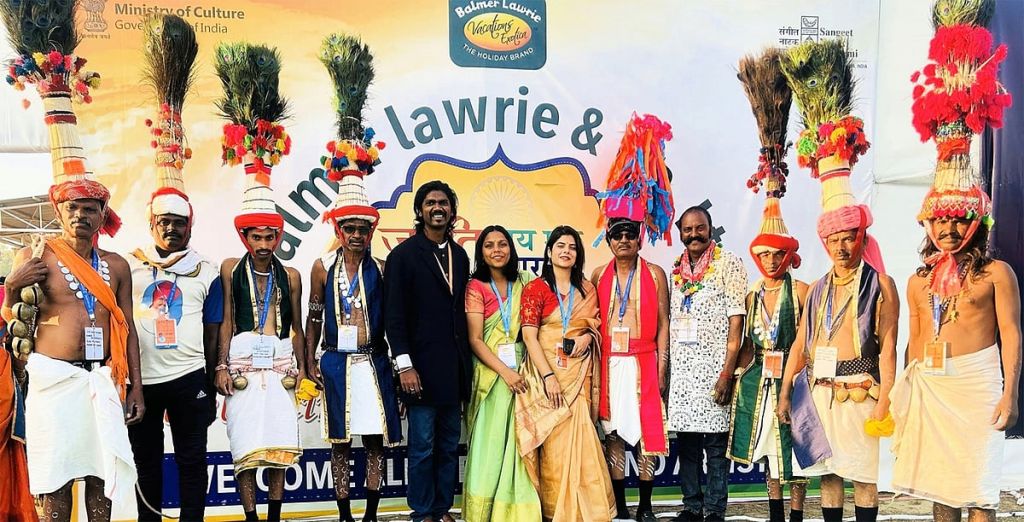
On the occasion of India's 76th Republic Day, the Ministry of Culture, Government of India, in collaboration with Sangeet Natak Akademi, set a Guinness World Record for the 'Largest Indian Folk Variety Dance' during the Jayati Jai Mamah Bharatam - 2025 event.
Bringing together over 5,000 artistes from across the country, the event showcased more than 50 vibrant folk and traditional dance forms, symbolising the essence of India’s unity in diversity.
The momentous occasion was attended by the Minister of Culture and Tourism, Gajendra Singh Shekhawat; Uma Nanduri, Joint Secretary, Government of India; and Sandhya Purecha, Chairman, Sangeet Natak Akademi.
Among the standout performances was the Adivasi Holi dance from Maharashtra’s Nandurbar district, featuring 50 tribal artistes from the remote villages of Bhagarpani and Shahada.
For these artistes, this was more than just a performance—it was a journey of dreams. More than 45 dancers did not speak Hindi or Marathi, communicating solely in their native tribal language. Managing them for 35 days, overcoming language barriers and preparing them for this grand event was a challenge that was met with passion and dedication.
For over 30 artistes, aged 45 and above, this was an experience of many firsts—their first train journey, first hotel stay and first metro ride in Delhi. Witnessing their joy, excitement and amazement at every step was an emotional and unforgettable experience for everyone involved.
This opportunity for Maharashtra’s tribal dancers was made possible by Universal Tribes, under the leadership of Rajat Ramesh Raghatwan, who played a vital role in securing their participation and ensuring they received national recognition.
All travel (train/bus), food and costumes for the artistes were arranged and fully funded by Universal Tribes and Raghatwan, with reimbursements to follow from Sangeet Natak Akademi.
Raghatwan personally ensured that these artistes, despite their remote backgrounds and lack of prior exposure, felt comfortable and supported throughout their journey. His commitment to preserving and promoting tribal culture was evident in every aspect of this initiative.
This Republic Day, Maharashtra’s tribal artistes not only performed at a national event but also became part of history. Thanks to the unwavering dedication of Raghatwan, their journey to the capital, their first encounters with modern travel, and their spectacular performance will be remembered as a testament to India’s commitment to preserving and celebrating its diverse cultural heritage.